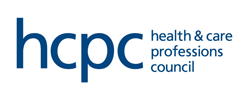Why have the key changes in the Early Years Foundation Stage (EYFS) been made? The Government has taken on board feedback about the EYFS in consultation with childcare providers and has decided to make it as simple as possible by removing elements deemed unnecessary or over bureaucratic.
Many elements have now been removed, for example, the requirement to provide staff appraisals has been removed, so too has the requirement for providers to have a named behaviour management coordinator or to have a specific behaviour management policy have now been removed from the framework. However, providers are responsible for managing children’s behaviour in an appropriate way. The inspection framework may have been slimmed down but the requirements certainly have not. Don’t be lulled into a false sense of security. Providers are still required to provide a quality service, but the requirements are not as clear as they used to be. Here’s the heads up on key changes in the Early years Foundation Stage.
Assessment- The progress check at Age Two has changed. Practitioners must now discuss with parents and/or carers how the summary of development can be used to support children’s learning at home. The EYFS Profile is still mandatory and a new base line check will not come in until 2015.
Staff qualifications – All new early years practitioners at level 3 must now have GCSE Maths & English at lever A-C or above to be counted in the ratios.
Training and support – The requirement for providers to support staff to gain a level 2 qualification has changed to support staff to ‘appropriate’ qualification. At least one person with a current paediatric first aid certificate must be on the premises and available at all time when children are present and must accompany children on outings. Providers must now take account of the number of children and the layout or the premises to ensure that a paediatric first aider is able to respond to emergencies quickly. The requirement for providers to access local authority training in first aid has now been removed from the framework. Providers can now access this training from the providers of their choice preferably one with a nationally approved and accredited first aid provider and must cover the course content as for St Johns Ambulance or Red Cross paediatric first aid training and be renewed every three years
Staff ratios- Apprentices can now be counted in the ratios from age 16 years. Teachers or equivalent are expected to be working with the children for the vast majority of the time under the 1:13 ratio. Before and After School and holiday care providers are now able to decide the staff child ratios for they provide. However there must be sufficient staff for a class of 30 children and to decide which if any qualifications are appropriate for these staff.
Before and after school and holiday provision – Where the provision is solely for children before and after school and holiday care who attend reception class or older during the school day, providers are no longer expected to meet the learning and development requirements. However, providers are expected to discuss with parents and others the support they offer to children.
SEN- Maintained nursery schools must have a SENCO, others are expected to indentify a SENCO.
Safeguarding- Providers now have a duty to inform the Disclosure and Barring Service when a member of staff is dismissed because they have harmed a child or put a child at risk of harm.
To find out more about how the changes to the Early Years Foundation Stage effects your setting and to book your free nursery consultation. Contact Gillian at The Change Agency email gillian@thechangeagency.org.uk or tel: 07999936086.
MA, ILM, is a Early Years Consultant, trainer, & qualified personal & leadership coach find me on Twitter @changeagencynw & LinkedIn The Change Agency







